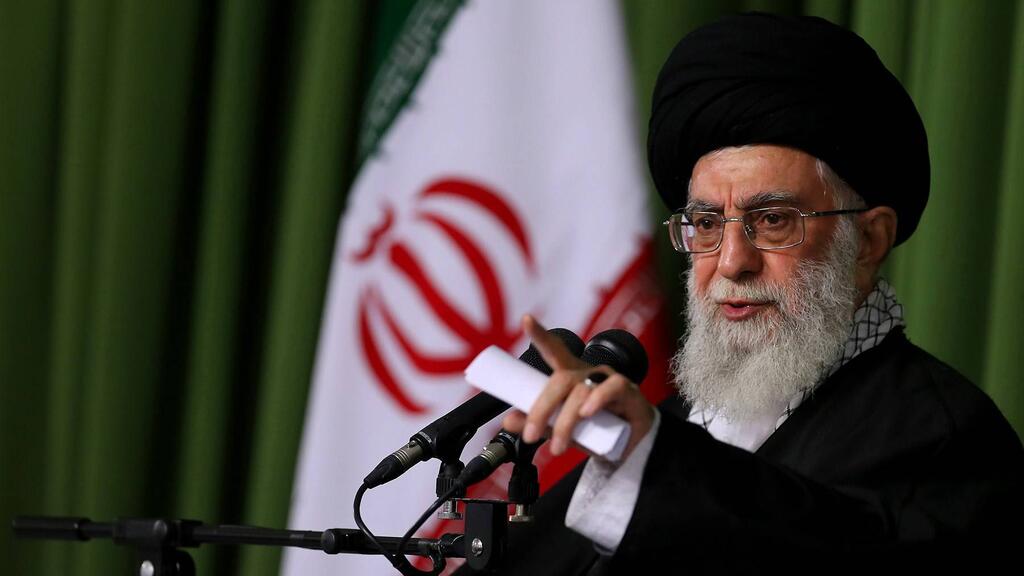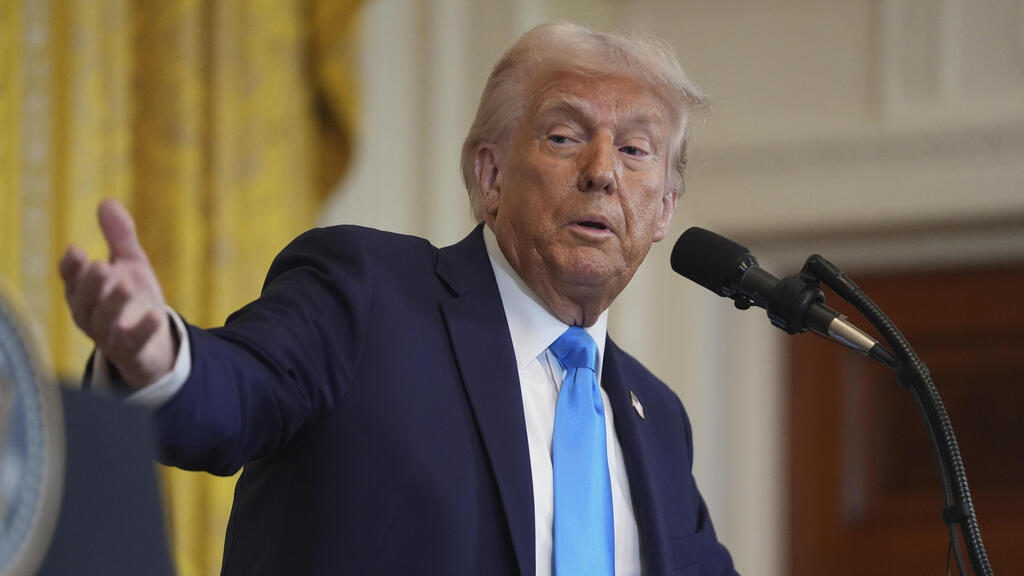U.S. President Donald Trump's announcement of a return to a "maximum pressure" policy on Iran's economy via sanctions is taking a toll on Tehran’s markets. The Iranian rial hit an all-time low on the black market, trading at 858,000 rials per U.S. dollar.
On Tuesday, shortly before meeting with Prime Minister Benjamin Netanyahu, Trump signed an executive order reimposing sanctions on Iran, particularly targeting its leading source of foreign reserves — oil exports.
The Iranian government's official exchange rate doesn't reflect the real market value. The demand for U.S. dollars, seen in Iran as a safe haven, has surged since Trump was re-elected in early November, causing the rial to lose 25% against the dollar.
Since his return to the White House last month, the rial has lost another 5.5%. Over the past year, which saw the Islamic Republic exchanging direct blows with Israel, setbacks in the Middle East (including the toppling of Bashar Assad’s regime in Syria and Hezbollah's heavy losses in its war against Israel) and Trump's return, the rial has lost 55% of its value.
The currency's collapse is fueling inflation. Iran does not regularly publish updated inflation figures, but its last reported rate stood at 40% — a number widely disputed by independent economists and the public amid frequent price hikes for food and other essentials.
With expectations that the rial will continue to weaken under Trump's pressure campaign, inflation is expected to rise further. The currency's rapid depreciation is eroding Iranians' purchasing power, even among the middle class, increasing frustration over the regime's economic mismanagement.
Corruption, negligence and the government's misplaced priorities have led many Iranians to lose faith in state institutions, particularly the banking system. Instead, they seek to safeguard their assets outside official financial channels.
Get the Ynetnews app on your smartphone: Google Play: https://bit.ly/4eJ37pE | Apple App Store: https://bit.ly/3ZL7iNv
Gholamreza Mesbahi-Moghaddam, a member of Iran’s Expediency Discernment Council, claimed earlier this week that Iranians have hoarded $70 billion in gold and foreign reserves outside the economy. "The state is seeking $5 billion in loans from international bodies, while $70 billion remains outside the economic system in private hands," he said at a financial conference in Tehran.
Iran's dilemma: negotiation or nuclear escalation?
Tehran's leadership was already debating its response to the U.S. before Trump signed the latest sanctions order.
3 View gallery


Iranian President Masoud Pezeshkian
(Photo: Sputnik / Alexander Scherbak / Pool via REUTERS / Reuters)
Officials close to President Masoud Pezeshkian, considered a pragmatist, have expressed willingness to negotiate with the U.S. to avoid severe economic fallout. They argue that an agreement and sanctions relief are essential to rebuilding Iran’s economy.
The country’s powerful ruling ultraconservative faction, however, sees the increased U.S. pressure as a reason to accelerate Iran's nuclear program as a deterrent. The final decision—whether to pursue negotiations or escalate nuclear activities—rests with Supreme Leader Ali Khamenei.



